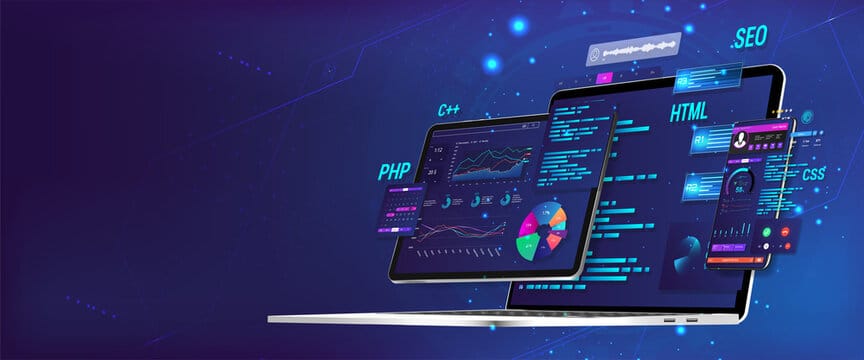Imagine a world where software doesn’t just get coded—it evolves, protects itself, and even thinks ahead. In 2025, software development isn’t just speeding up—it’s transforming how we build and deploy technology. If you're part of a software development company in the USA or any forward-thinking tech team, these trends aren’t optional—they’re redefining the game.
1. Agentic AI Becomes the Team’s MVP
AI isn’t just about autocomplete anymore. Tools like GitHub Copilot, CodeWhisperer, and Claude 4 have evolved into agentic AI systems—autonomous collaborators that manage entire dev pipelines: backlog, testing, deployment. That’s not sci-fi—that’s happening now. Studies show developers using AI can be up to 30% more productive, freeing them from boilerplate code to focus on strategy and system design.
2. Low-Code/No-Code Gets Smarter
By 2025, the low-code market is projected to double—from $22 billion in 2022 to $50 billion, according to Forrester. Now, AI-enhanced platforms like Appian and Pega are letting “citizen developers” build enterprise-grade apps in hours—not weeks—while cutting administrative tasks by up to 50% in healthcare workflows.
3. DevSecOps: Security Goes Left
No more tacked-on security at the end. 2025 is the year of Shift-Left Security. Static Application Security Testing is embedded in IDEs, and AI models flag vulnerabilities as you code. With privacy laws tightening and cyber threats soaring, early adopters are breathing easier—and staying compliant. SME surveys show 68% have already implemented DevSecOps, but only 12% run security scans with every commit—meaning the next gold standard is within reach.
4. Platform Engineering Powers Developer Joy
Complexity is rising—but burnout doesn’t have to. Internal Developer Platforms (IDPs) equipped with self-service environments and infrastructure abstractions (think Kubernetes hidden behind a button) are letting devs focus on innovation—not YAML files. It’s no wonder platform engineering is now a bedrock practice for scaling happy teams.
5. Quantum Enters the Dev Toolkit
Quantum computing isn’t just in labs—it’s touching logistics, cryptography, and test optimization. India even launched a 25-qubit quantum system in April 2025. Plus, NIST’s 2024 release of Post-Quantum Cryptography standards is pushing teams to future-proof their code. The frontier between classical and quantum software is now blurred—and strategic developers are positioning themselves ahead of the curve.
6. Ambient Invisible Intelligence (AII) Shapes the Workflow
Think of AI that works quietly—and brilliantly—in the background. Ambient Invisible Intelligence is now surfacing in IDEs, cloud tools, and agent bridges like Model Context Protocol (MCP) in Microsoft Copilot. It’s like having a silent, intelligent coworker who tweaks, suggests, and optimizes—without interrupting your focus
7. Code That’s Built to Last—Secure, Scalable, Sustainable
With AI speeding up development, the risk of fragile, messy code grows. Leaders from Wiz warn: hackers are adapting fast too—and security must scale with speed JetBrains reports 84% of devs use or plan to use AI daily, shifting focus to architecture, ethics, and AI oversight.) Meanwhile, homegrown DevOps frameworks guided by culture, automation, measurement, and knowledge-sharing are being adopted to ensure velocity never comes at the cost of maintainability.
The Takeaway
In 2025, software isn’t written—it’s orchestrated: by AI agents, intuitive platforms, quantum-aware systems, and guardrails that let teams move fast but stay safe. Whether you're steering a software development services firm, building for the US market, or leading in innovation—these trends are your roadmap. The smartest coder on your team? Might just be the smartest agent—guiding, optimizing, and accelerating every line of code.

